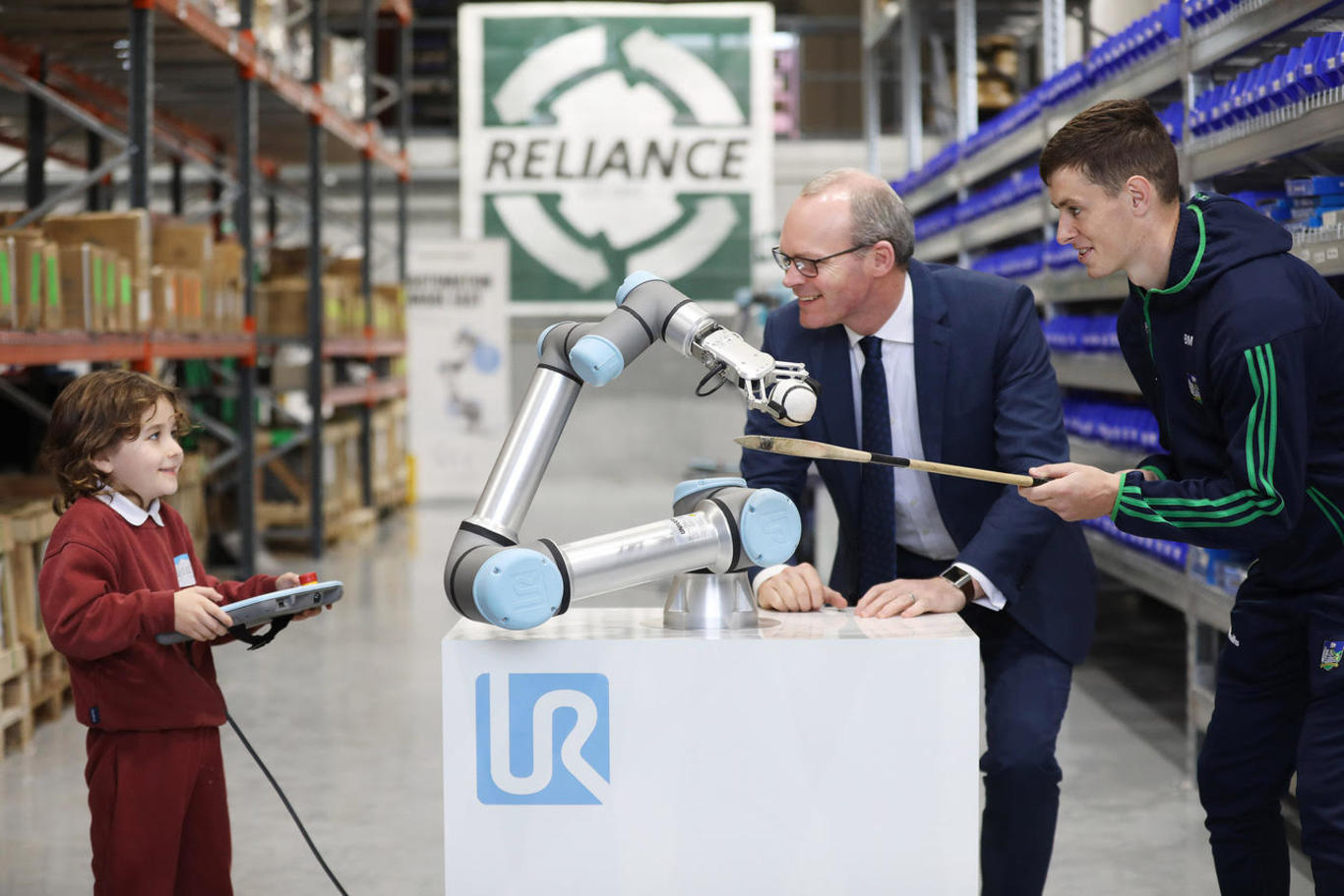Will robots take your job in 2020? It’s highly unlikely, but change is afoot
How much are Irish businesses relying on automation and what changes can we expect over the next year?
AUTOMATION HAS BEEN on the tip of many people’s tongues for years and is gaining momentum in Ireland.
From automatic check-in at airports to self-service in the supermarket, we interact with automation technology perhaps more than we realise. However, there is quite a lot of vehemence that surrounds automation, particularly when we talk about the most-emerging change within automation – cobots.
So, what exactly is a cobot? You’ve heard of a robot and a cobot, or collaborative robot, is essentially one that can collaborate successfully with humans.
Robots have been part of workplaces for at least a decade and historically for these industrial robots to work efficiently and without causing physical harm to humans, they had to be separated from physical contact in human-free zones or wrapped in cages to mitigate risk.
While the idea of automation in the workplace is to better business efficiency, having robots locked away or not integrated into the human workforce limits their application and power.
Cobots, on the other hand, operate in conjunction with and near humans to perform tasks. Intentionally built to interact with humans and share the workspace, cobots are programmed to not endanger human welfare.
Programming
When it comes to their capabilities, it’s all about programming. Humans teach the cobot, such as a robotic arm, by physically moving it around in the way they want it to work. The cobot remembers the steps, repeating them and getting better every time and ultimately achieving the end goal.
We’ve programmed cobots to slice pizza, pack boxes, move heavy items – I’ve also seen cobots programmed to make cocktails on cruise ships. If you can find an application for a cobot, it can likely be programmed to do just that.
Cobots are accurate and will never deviate from the actions and tasks they are programmed to do, completing all with the same attention to detail. Take as an example, affixing bolts, cobots are great from a quality assurance point of view as they’ll affix with the same pressure every time.
Many of the Irish workplaces that have already integrated cobots rely on them for tasks in manufacturing such as supply chain, and logistics such as warehouse – mostly all backstage operations.
The most-popular industries using cobots in Ireland at the minute include pharmaceutical, mechanical engineering and logistics and there are more than 250 of our cobots integrated across the country.
Is your job really at risk?
So, the big question: Do cobots put your job at risk?
We’ve seen a huge increase in the frequency of cobots in the workplace in 2019 but also a huge variation in the types of workplaces enquiring and adopting cobots to perform specific functions. We do envisage that cobots will make their way into more consumer-facing outlets in retail, hospitality and healthcare. That said, it’s highly unlikely that a cobot is a threat to your job.
Cobots are designed to change the workplace for the better, to collaborate with humans to make their working life easier and allow them to work on brain-led tasks so more time can be spent on research and development.
For us, it’s all about education and helping people to see the benefits to understand that cobots are here to empower, not control and takeover.
Samantha Cummins-Byrne is Irish development lead at Universal Robots
Get our Daily Briefing with the morning’s most important headlines for innovative Irish businesses.






